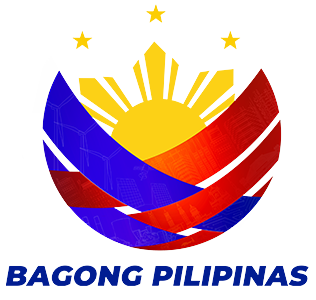Chemical Engineering
General Practice of Chemical Engineering
- What constitutes practice of chemical engineering: A person shall be deemed to be practicing chemical engineering or rendering chemical engineering service within the meaning and intent of this Act who shall, for a fee, salary or other reward or compensation, paid to him or through another person, or even without such reward or compensation, render or offer to render professional chemical engineering service in the form of consultation, investigation, valuation, planning, designing or preparation of specifications for or estimates of industrial plants or undertake the supervision of construction, erection, installation, alteration, or operation of industrial plants.
- The term industrial plant as used in this Act, shall mean any plant in which unit process and unit operation are involved.
- The term unit process as used in this Act, shall mean the type of chemical change which is involved in the manufacture of industrial products.
- The term unit operation as used in this Act, shall mean a type of physical operation by which a desired step in an industrial process is controlled or conducted.
On February 23, 1921, under Public Act No. 2985, the Board of Examiners for Chemical Engineers was placed under the Secretary of Commerce and Communications. When the executive department was reorganized in 1932 under Republic Act No. 4007, the Board was transferred to the Department of Public Works and Communications. The Department Secretary appointed the Chairman and Members of the Board, while the Director of the Bureau of Civil Service administered licensure examinations and kept all Board records including examination papers and minutes of Board meetings.
The first Board was composed of Engr. Ramon T. Feliciano as Chairman with Engrs. Vivencio S. Araos and Moises L. Miranda as Members.
On June 19, 1948, the passage of Republic Act No. 318 led to the creation of a new Board of Examiners for Chemical Engineers. The law empowered the Department of Public Works and Communications Secretary to appoint a three-man body that would administer the Board’s functions and operations. It also defined the regulatory powers of the Board on the conduct of licensure examinations and issuance of Certificate of Registration .
In its campaign to give its professionals the highest degree of moral standards, the Board laid down a Code of Ethics to guide chemical engineers in the practice of their profession. It formally adopted and approved the Code on January 14, 1985. To ensure that the applicant for the chemical engineering profession meets the required learning and proficiency, the Board drafted the set of Guidelines and General Instructions on the Conduct of Chemical Engineering Licensure Examinations. The guidelines provide for formulating test questions and a general description of subjects for examinees.
The same was disseminated and circularized to all schools and colleges on August 9, 1993.
Republic Act No. 9297
An Act Regulating the Practice of Chemical Engineering and Repealing for this purpose Republic Act Numbered Three Hundred and Eighteen (R.A. NO. 318), otherwise as "The Chemical Engineering Law".
The Board shall exercise the powers conferred upon it by this Act, shall from time to time look into the conditions affecting the practice of chemical engineering in the Philippines, and whenever necessary, recommend to the Secretary of Public Works and Communications6 the adoption of such measures as may be deemed proper for the vigorous enforcement of this Act.
Philippine Institute of Chemical Engineers (PIChE)
Unit # 2015 Cityland Condominium 10, Tower II
156 HV Dela Costa St.
Ayala North, Makati City
Tel/Fax No.: (+632) 753-5192
Website: http://www.pichenet.org/
Re-accredited: Res. No. 06 dated October 26, 2009
The Philippine Institute of Chemical Engineers was organized in 1939 by a group of practitioners including Rafael Aguilar, Angel S. Arguelles, Armando Clemente, Timoteo T. Dar Juan, Felix V. Espino, Jose C. Espinosa, Ramon T. Feliciano, Roque Garcia, Vicente Lava, Benito Legarda, Moises Lucas and Francisco Quisumbing.
The fifth professional organization accredited by the PRC, the PIChE was established to foster closer fellowship among the members and to uplift, safeguard and protect through lawful means the welfare of its members.
It advocates the advancement of science and technology in the field of Chemical Engineering and upholds the highest standards of the practice towards achieving national development.
The PIChE is recognized as an active participant in the industrial pollution abatement practice and countryside development. It gained global recognition in 1981 when it organized the Asia-Pacific Confederation of Chemical Engineers (APCCHE).
Qualification of Board Members
The member of the Board shall, at the time of his appointment:
- Be a citizen of the Philippines;
- Be a holder of the degree of bachelor of science in chemical engineering conferred by a reputable and legally constituted college, institute or university;
- Be at least thirty years of age;
- Be a duly registered chemical engineer in the Philippines;
- Have had at least ten years of experience in chemical engineering; and
- Not be a member of the faculty of any school, college, university where a regular course in chemical engineering is taught, nor have pecuniary interest in such institution.


